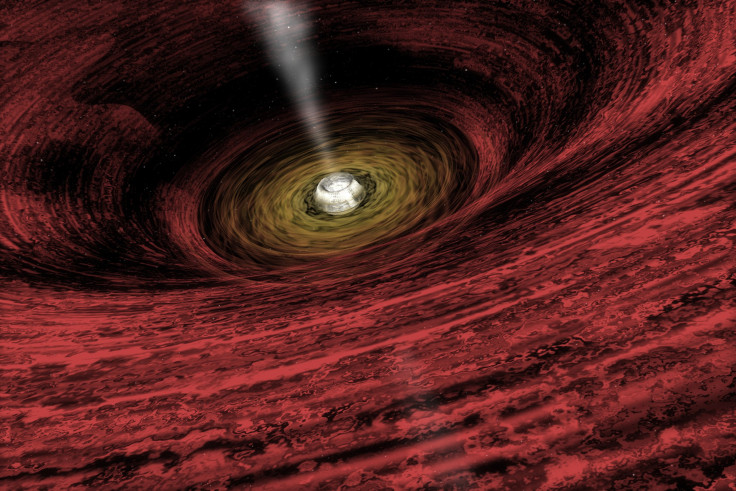Gigantic, Ancient Black Hole 12 Billion Times The Mass Of Sun Puzzles Scientists

Researchers from China have spotted a black hole that is so massive and so ancient that it contradicts our current understanding of how these bodies are formed. According to a paper published Wednesday in the journal Nature, the black hole is 12 billion times the mass of the Sun and was formed in the very infancy of our universe -- less than 900 million years after the Big Bang.
Black holes, which are regions of space-time that are so dense that not even light can escape their gravitational pull, are formed when a massive star collapses under its own weight. As these objects consume nearby dust and stars, or merge with other black holes, they grow in size. Because the process of swallowing interstellar matter takes time, it makes the discovery of such a massive, ancient black hole a challenge to the current theories of the evolution of such bodies.
“How do you build such a big black hole in such a short time?,” Xue-Bing Wu of Peking University in Beijing, who is the lead author of the study, asked, according to a report by the National Geographic magazine.
The black hole, which became visible due to the presence of superheated gas jets and a rapidly spinning accretion disk, was spotted using the Lijiang Telescope in Yunnan, China. Studying the light from the quasar, which was found to be 40,000 times as bright as the entire Milky Way, scientists calculated that the black hole was formed about 12.9 billion years ago, when the universe was just 6 percent of its current age.
“It (the black hole) must have been accreting gas at close to the maximum rate for most of its existence,” Bram Venemans of the Max Planck Institute for Astronomy in Heidelberg, Germany, who was not involved in the study, reportedly said. Another possible explanation is that the black hole might have begun its life not with the collapse of a single star, but with the collapse of a very large gas cloud.
However, both explanations directly contradict theories about how black holes formed and grew in the early universe.
“We are still very uncertain as to the modes of black-hole formation and growth in the early Universe … so we do not have a leading model for this observation to pose problems to,” Chris Willott, an astronomer at the Canadian Astronomy Data Centre in Victoria, reportedly said.
© Copyright IBTimes 2024. All rights reserved.





















